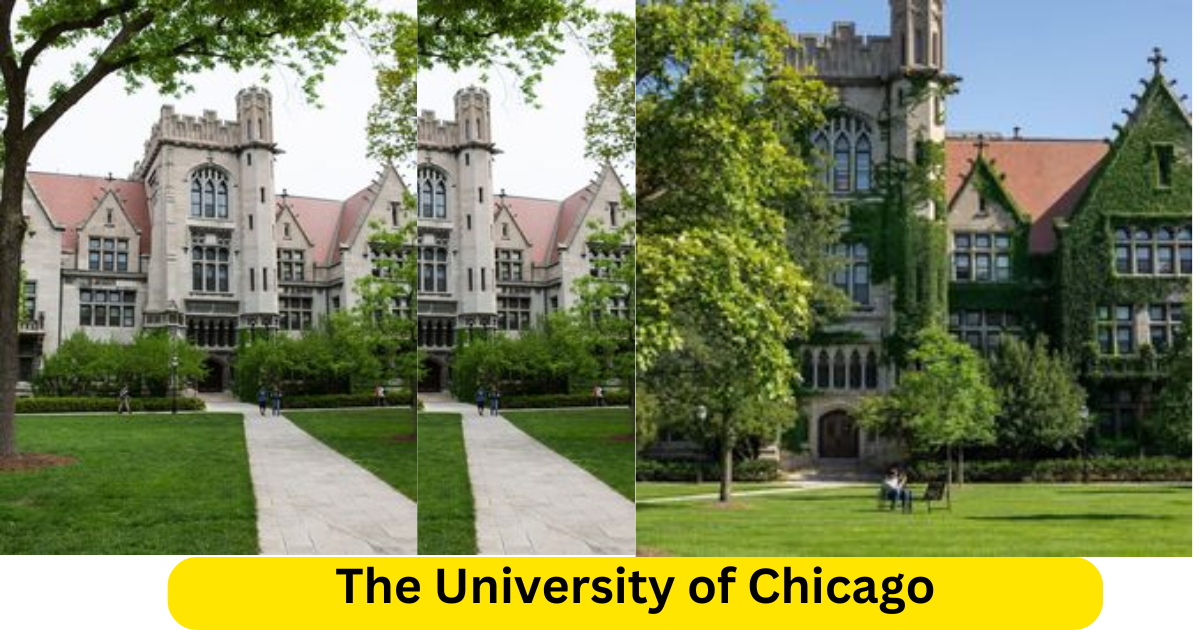The University of Chicago: A Beacon of Intellectual Rigor and Innovation
The University of Chicago is a world-renowned institution known for its rigorous academic programs, groundbreaking research, and influential alumni. Established in 1890, it has consistently ranked among the top universities globally. This article delves into the history, academic programs, notable alumni, and the overarching impact of the University of Chicago on education and society.
A Brief History of the University of Chicago
Founded by the American Baptist Education Society and oil magnate John D. Rockefeller, the University of Chicago was established with a commitment to academic excellence and free inquiry. Located in Chicago’s Hyde Park neighborhood, the university quickly became a leader in higher education and research.
Key Milestones in the University of Chicago’s History
- 1890: The University of Chicago is founded by the American Baptist Education Society and John D. Rockefeller.
- 1907: The university’s first Nobel Prize is awarded to Albert A. Michelson in Physics.
- 1942: The first controlled nuclear reaction is achieved at the university’s Metallurgical Laboratory under the leadership of Enrico Fermi.
- 1992: The University of Chicago Press publishes “The Chicago Manual of Style,” which becomes an industry-standard reference.
Academic Excellence
The University of Chicago is renowned for its rigorous academic programs, distinguished faculty, and commitment to intellectual inquiry. The university offers a wide range of programs across various disciplines, fostering a collaborative and intellectually stimulating environment.
Undergraduate Education
The undergraduate program at the University of Chicago is designed to provide a solid foundation in the liberal arts while encouraging critical thinking and interdisciplinary studies. Key features include:
- Core Curriculum: A distinctive feature of the undergraduate experience, the Core Curriculum ensures that students gain a broad and deep education in the humanities, social sciences, and natural sciences.
- Research Opportunities: Students have the opportunity to engage in independent research projects, often working alongside faculty on cutting-edge research.
- Interdisciplinary Approach: The university encourages students to explore multiple fields of study, fostering a well-rounded education.
Graduate and Professional Education
The University of Chicago’s graduate programs are equally prestigious, offering advanced degrees across a wide range of disciplines. Notable schools and departments include:
- Booth School of Business: Known for its MBA program and contributions to economic research and business leadership.
- Law School: Offering a rigorous legal education with a focus on interdisciplinary study and public service.
- Pritzker School of Medicine: A leader in medical education and research, advancing the frontiers of healthcare and biomedical science.
Research and Innovation
The University of Chicago is at the forefront of groundbreaking research and innovation. The university’s numerous research centers and institutes contribute significantly to advancements in various fields. Key research areas include:
- Economics: Home to the renowned Chicago School of Economics, which has influenced economic theory and policy worldwide.
- Physics: Known for its contributions to particle physics, cosmology, and the discovery of the first controlled nuclear reaction.
- Social Sciences: Advancing knowledge in sociology, anthropology, and political science through interdisciplinary research.
Notable Alumni
The University of Chicago has produced a remarkable array of alumni who have made significant contributions to society in various fields. Some of the most distinguished include:
- Milton Friedman: Nobel Prize-winning economist known for his contributions to monetary policy and free-market economics.
- Katherine Dunham: Pioneering dancer and choreographer who transformed modern dance.
- Saul Bellow: Pulitzer Prize-winning novelist and recipient of the Nobel Prize in Literature.
Global Impact and Influence
The University of Chicago’s influence extends far beyond its Hyde Park campus, impacting global education, policy, and innovation through its collaborative efforts and outreach programs.
Collaborations and Partnerships
The University of Chicago actively collaborates with institutions worldwide to address global challenges and promote academic exchange. These partnerships include joint research initiatives, exchange programs, and international conferences.
Public Service and Outreach
The University of Chicago is deeply committed to public service and community engagement. The university’s various outreach programs and initiatives aim to make a positive impact on society. Notable examples include:
- Urban Labs: Addressing urban challenges through evidence-based research and policy solutions in areas such as crime, education, health, and poverty.
- Civic Engagement: Programs like the Community Programs Accelerator support local nonprofits and community organizations in Chicago.
Admission Process and Requirements
Gaining admission to the University of Chicago is highly competitive, with an acceptance rate typically below 10%. Prospective students must demonstrate exceptional academic achievements, strong extracurricular involvement, and a compelling personal narrative.
Key Admission Requirements
- High School Transcript: Reflecting academic excellence in a rigorous course load.
- Standardized Test Scores: While UChicago has adopted a test-optional policy, strong SAT or ACT scores can enhance an application.
- Extracurricular Activities: Demonstrating leadership, community service, and other significant involvements.
- Personal Essays: Offering insights into the applicant’s personality, values, and aspirations.
- Letters of Recommendation: Providing valuable perspectives from teachers, counselors, or mentors.
Conclusion
The University of Chicago stands as a beacon of intellectual rigor, innovation, and leadership in education and research. Its rich history, distinguished academic programs, and influential alumni make it a cornerstone of global advancement in various fields. As the university continues to evolve, its commitment to fostering a culture of inquiry and excellence remains unwavering.
